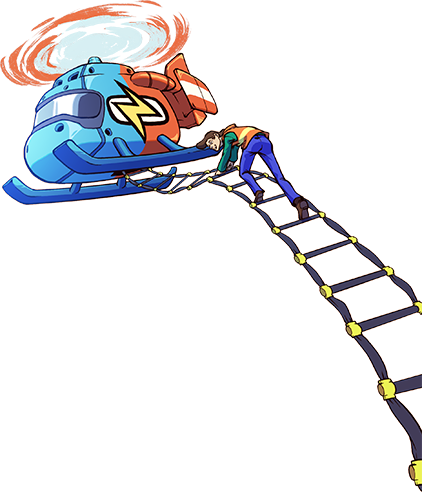.png)
Next Games \\ Stranger Things: Puzzle Tales
MUCH LIKE THE GLOBAL GAME INDUSTRY, The Finnish Game Industry is currently facing challenges due to an still ongoing investment downturn. Accessing funding has become increasingly difficult, both in terms of closing deals and the time required to finalize them, which is hindering the industry's growth. Profitability has become a top priority and some studios are likely forced to shut down if they cannot establish a profitable business within one to two years. Those in the industry pursuing a dream may soon find themselves unable to continue, while those focused on building sustainable businesses are more likely to endure.
Investors are seeking something new, as traditional business models are not effective in the new market reality. They are also looking for much more developed projects than before. Before, game developers were pitching for funding to create a demo. Now, they start pitching for private capital when a demo is ready, and funding is needed to finalize the game.
Ambitious high-risk game development projects utilizing novel technologies, game design solutions, and business models (e.g., games based on blockchain technologies, user-generated content, serious games, or new publishing models) are facing significant challenges in securing private risk funding, especially locally in Finland. On an international level, the notable time difference between Finland and Asia, as well as the United States, makes maintaining business leads challenging for Finns.
Although the industry in general is struggling with access to funding, Finland is home to numerous game industry super-talents who have secured seed funding for their new startups (e.g., Future Run, Social First, Tribo Team, Seven Stars) with relative ease. When a studio is backed by strong risk-taking investors, a team of skilled professionals, and equipped with cutting-edge technologies, the sky is the limit on the possibilities for success.

Parta Games \\ Rescue Rivals
Collaboration with publishers is getting harder. As self-publishing is becoming increasingly challenging and private risk funding is dwindling, more and more game developers are turning to publisher funding. Unfortunately, big global industry conglomerates are slowly shifting away from third-party publishing to focus on their own IPs. As a result, even medium-sized companies are forced to self-publish their games.
Finland is not the cheapest of the places to develop games. Finnish studios must leverage their talent and expertise to pitch their games to publishers and maintain existing partnerships successfully. Some Finnish game developers have had successful collaborations with other developers, including Remedy Entertainment with Epic Games (Alan Wake II) and Hanki Games with Bonus Stage Publishing (Sledders).
Overcrowded B2B subcontracting markets. The ongoing industry downturn has prompted many game developer studios worldwide to venture into B2B subcontracting markets. Many who moved to B2B subcontracting hoped to finance the development of their own IPs but learned quickly that it significantly slows down the development of their own game. However, for some studios, the equation has worked, and B2B subcontracting has kept studios alive. For example, Kuuasema has been successful in this, and their turnover has increased recently.
Despite increasing global competition in the B2B subcontracting market, Finnish studios have found various ways to succeed. Some rely on their high technological and game development expertise. Some studios are specializing in maintaining already existing games as subcontractors instead of providing a helping hand to build new ones. Some studios are looking for new opportunities from market segments that share the same talent base and tools.
Codevelopment as a solution to production challenges. As access to funding becomes increasingly difficult and game productions grow larger, some studios are shifting their focus on co-development, as it allows them to reduce risk, scale up productions, and pool resources for marketing. This requires an entirely new mindset.

Fingersoft \\ LEGO Hill Climb Adventures
When times get tough, public money should step in. Challenges in accessing private funding have underscored the importance of public funding. Due to cuts in funding, especially at the regional level, smaller regional clusters are struggling. As support measures that help new start-ups emerge are cut away, the steady flow of new game developer studios dries up, and the talent base of the local game dev community also starts to drain. Start-up support measures are particularly crucial now as market entry barriers for newcomers are higher than ever.
The Finnish Game Industry is now even more dependent on EU funding when it comes to public game production support. As an outcome of years of work by Neogames and the local Creative Europe Media Desk, Finnish game developers are becoming year by year more successful in getting their EU funding projects through.
Fortunately, in 2025, the Finnish government responded to industry calls by introducing a new public R&D funding instrument that targets all cultural and creative industries, including the game industry. Alas, public R&D funding cannot be used for game marketing, which is becoming increasingly expensive and difficult to finance.
Similarly, some regions, such as Kajaani, Espoo, and Tampere, have launched new SME support programs, ensuring that the next generation of successful entrepreneurs is emerging in local incubators. In some cities, such as Oulu, individual companies have taken the initiative with projects like Oulu Game Farm, ensuring that there will be local junior talent for the industry in the future as well. Business Oulu on the other hand has been able to offer sustainable support to local game developer studios for over 10 years.